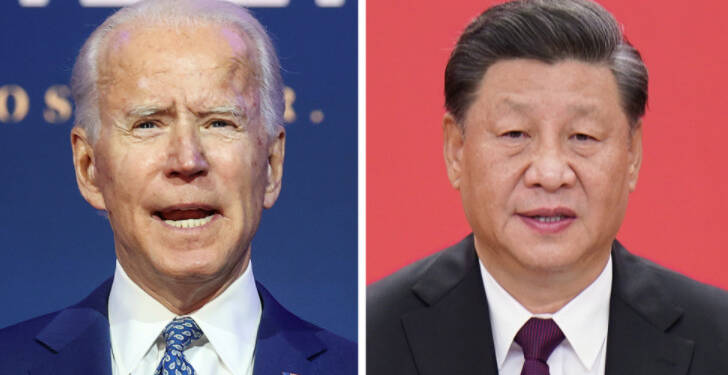Since Biden has ascended the US Presidency, his administration’s position on China has changed considerably. From the previous administration’s stance of China being a threat to Biden’s approach towards China being a “strategic competitor” to now using the policy of ‘strategic patience’ – the transition is evident.
President Biden is taking a “strategic approach” towards China, White House press secretary Jen Psaki said on Thursday, adding that the administration is “not in a rush.”
Psaki, during the White House press briefing on Thursday, said that the President is “clear-eyed” about U.S.-China policy, noting that it is “a strategic competition.”
The comments from Psaki came after Biden had his first phone call with Chinese President Xi Jinping since taking office. Senior government officials said that Biden summarised the “core concerns” of the administration with China’s “practices, aggressive activities and abuses,” suggesting a “clear and consistent subscription to American values,” while addressing ways in which the administration feels that collaborating with Beijing may be in the national interest of the United States.
But according to author and former Naval intelligence officer Jack Posobiec, The Biden administration, despite calling China the “most serious competitor” to the United States, is, in fact, unwilling to confront Beijing.
During an interview with NTD’s ‘Focus Talk,’ Posobiec said, “What you’re seeing now is an administration in the United States that is little more than a theatre, It is their window dressing for the global neo-liberal agenda. They have no interest in actually confronting the Chinese Communist Party (CCP).”
Global Times, the CCP propaganda outlet, while discussing the Biden’s first policy speech, had pointed out “Generally speaking, after taking power, Biden has shown caution in policy announcements in terms of China. The new team in the White House seems to be shaping an expectation among US society – the new government will keep playing tough with China, but at the same time, it will adjust the previous administration’s practices and carry out cooperation with China in some areas. They will not easily reveal how to do it, maybe because they have not yet figured it out, or maybe they have felt the political sour point in adjusting their China policies. But even if they make relevant adjustments, they will still show a tough attitude in their rhetoric.”
But Biden’s current strategy reflects none of the possible overtures for failing to engage with China aptly. His policy on Beijing has been soft and a latent departure from Trumpism. The Biden administration is fixated on a positive economic engagement with China. These actions are unilaterally increasing Jinping’s hold over the party and the state while at the same time, increasing his popularity.
Joe Biden’s policies have reflected increased engagements with more traditional allies. This policy is isolating the United States as it dumps potential powerful allies in favour of the old ones. Another pullback of the strategy is that it fails to reflect the current geopolitical scenario and the threats that the US must face and engage with responsibly.
Biden’s administration has stressed the term “strategic” a lot while referring to US relations with China. This actually shows that while they do not see China as a threat they still do not know how to engage with Beijing. Reversing all of Trump’s policies is not a reflection of the current world scenario.
China’s belligerence is still on the rise. Just a day in Biden’s Presidency, China sent swathes of fighter jets and bombers into Taiwan’s sovereign air space on two consecutive days!
Biden must realise that the new world order is taking shape and Biden’s ancient policies of strategic patience will leave the US behind and isolated. Biden’s foreign policy is being shaped by the Obama era policies and does not reflect the approach that the contemporary world order demands.
